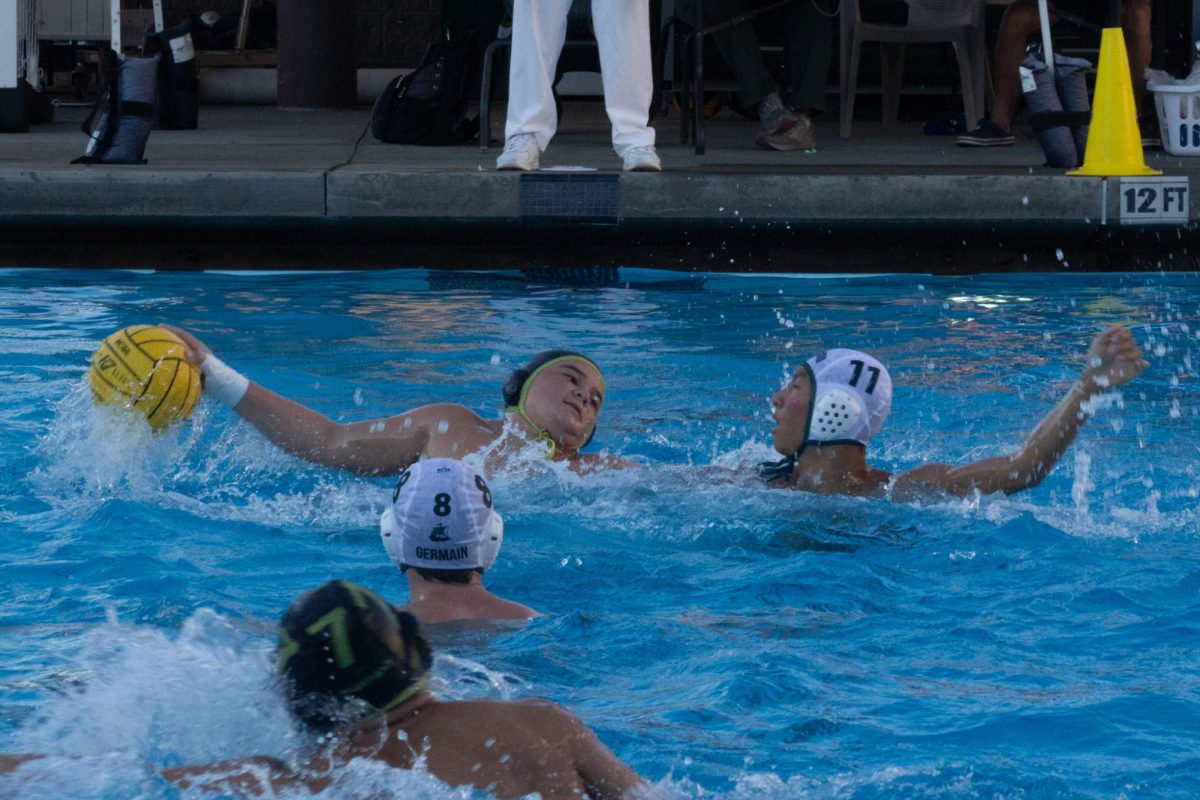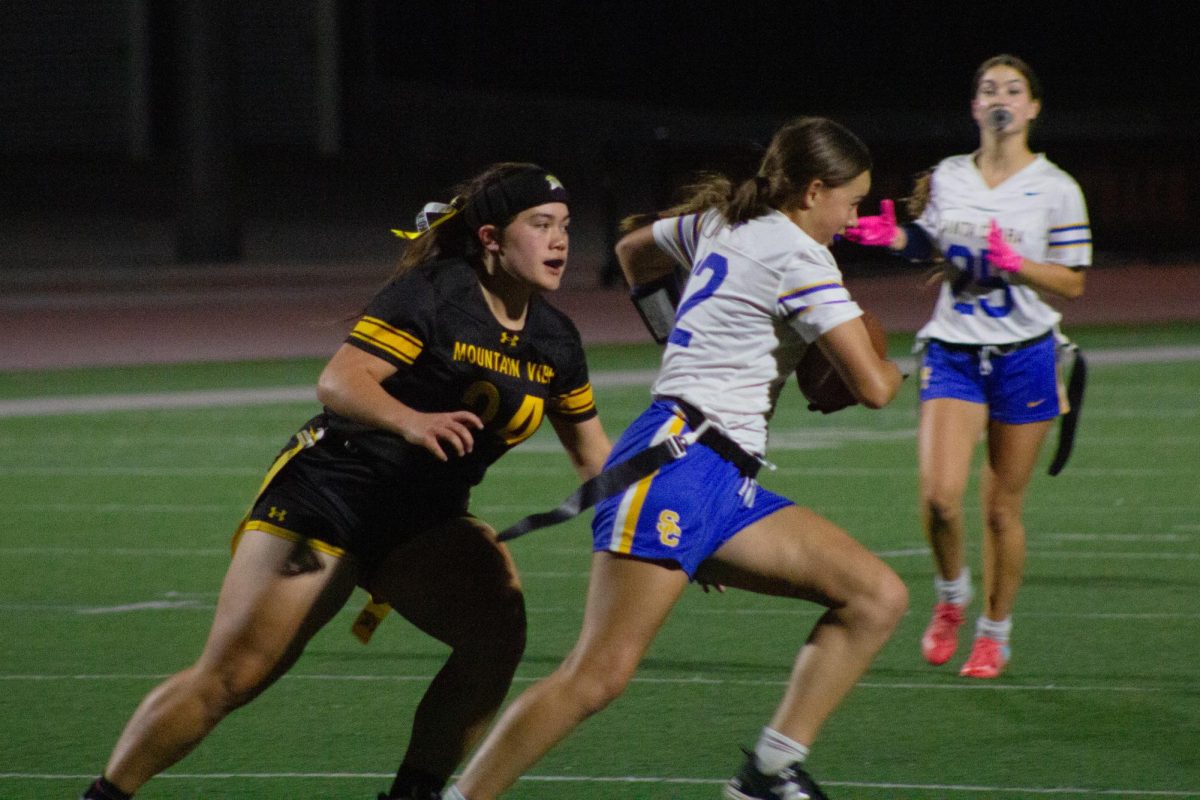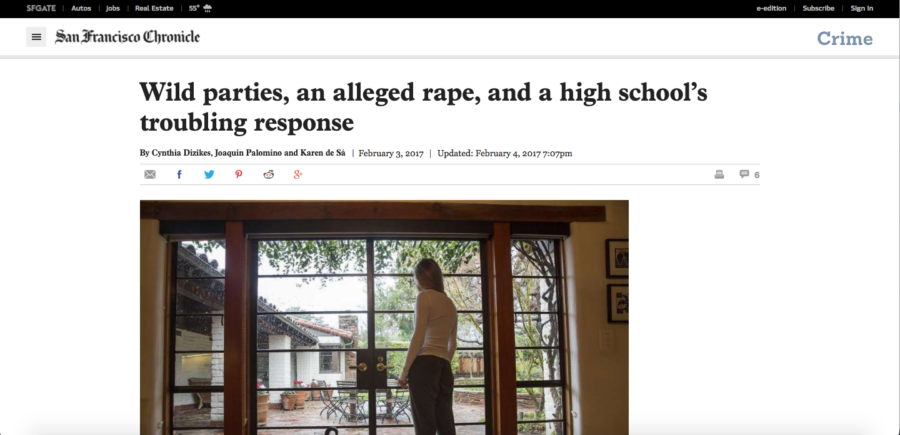Recently, the San Francisco Chronicle published an article regarding the district’s mishandling of an alleged rape of a student in September 2015. In light of pervasive issues surrounding sexual assault, the Oracle has chosen to cover rape culture for our Focus page. The Oracle polled MVHS health class students regarding uncertainties about what constitutes consent. Below are the questions followed by information from California law, Santa Clara County Supervising Deputy District Attorney for Sexual Assault, Luis Ramos, and health teacher Heather Boyle.
What conditions are considered as sexual assault?
To give a brief definition, sexual assault is any nonconsensual sexual conduct. This does not only entail sexual intercourse, but also touching of intimate body parts. California law explains touching as “physical contact with another person, whether accomplished directly, through the clothing of the person committing the offense, or through the clothing of the victim.”
The law describes intimate body parts as “the sexual organ, anus, groin, or buttocks of any person, and the breast of a female.” If any of these actions are made while the victim is unconscious, forcefully restrained, “institutionalized for medical treatment,” seriously disabled or drunk, or if the person does not give verbal consent, the act constitutes sexual assault.
Is it considered sexual assault when there is no evidence that you didn’t say yes or no?
If someone does not consent, it is sexual assault. However, sometimes there is not enough evidence to bring a sexual assault case to court. This evidence is not just in terms of whether or not the survivor of the assault said yes or no.
According to MVHS Health teacher, Heather Boyle, when the only evidence is the testimony of the two people involved, the District Attorney (DA) prosecuting the case may not bring it to court.
Other evidence the DA would look for, according to Santa Clara County Supervising Deputy District Attorney for Sexual Assault, Luis Ramos, are testimonies from eyewitnesses or people the survivor talked to about it, 911 calls, text messages or other forms of communication between the survivor and the suspect, the Sexual Assault Response Team exam and any findings from it including DNA and photos of injuries, any other victims of the same suspect, a statement made by the suspect that could show admission or confession, or a video taken by any means.
Nonetheless, just because a case is not brought to court, does not mean sexual assault did not take place.
If someone is 18 and the other person is 17, is it illegal for them to have sex? And would it actually be prosecuted if it were?
According to California consent laws, one must be at least 18 years old to consent to having sex. So, technically, it is illegal for an 18-year-old and a 17-year-old to have sex because the 17-year-old cannot legally consent.
California law states that “anyone who engages in an act of unlawful sexual intercourse with a person under age 18 and the actor is not more than three years older or three years younger, is guilty of a misdemeanor” and “anyone who engages in an act of unlawful sexual intercourse with a person under age 18 who is more than three years younger than the actor is guilty of either a misdemeanor or a felony.”
However, according to an email from Ramos, it is not their policy to prosecute such cases because they know it is a common occurrence, and often that parents are aware of and condone the behavior.
Ramos explained that some circumstances that would cause them to prosecute are “where there’s a pregnancy and the male is not taking responsibility for the child; where there is domestic violence concurrent with the sexual intercourse; and where the adult is in a position of trust (coach, teacher, teacher’s aide, scout leader, etc.).”
Is it considered sexual assault if one individual is drunk?
In short, yes, it is. The United States Department of Justice updated their definition of rape in January 2012 to recognize “that a victim can be incapacitated and thus unable to consent because of ingestion of drugs or alcohol.”
However, according to Ramos, in accordance with California law, the level of intoxication, and therefore, the level of mental impairment, of the survivor must be great enough that they could no longer exercise reasonable judgement.
Still, Ramos said there is no way to measure the level of intoxication necessary to know if someone cannot consent. The DA will look for as much evidence as possible to convince the jury that the survivor was not able to understand “the physical nature of the act, its moral character, and probable causes.”
Is it sexual assault if an individual is unconscious?
If someone is unconscious, yes, it does constitute as sexual assault.
According to Boyle, both men and women’s bodies have a reaction to being touched sexually whether or not they are conscious. If someone’s body is reacting to being touched, it is important to know that is by no means consent.
Consent is a verbal “yes” which cannot be given if someone is unconscious. California law states “any person who touches an intimate part of another person for the purpose of sexual arousal, sexual gratification, or sexual abuse, and the victim is at the time unconscious of the nature of the act…is guilty of sexual battery.”
The same expectation applies to rape as well. California law, says “a person is at the time unconscious of the nature of the act, and this is known to the accused,” classifies as rape.
If you are being sexually assaulted, what are some tips on how to get away?
The most important thing to do first is to assess the situation and see if the perpetrator has a weapon. According to the Mountain View Police Department, “the best resistance you can use against an attacker is your common sense…The most important element to remember is that you are not trying to fight the attacker, but are attempting to divert the person long enough to get away.”
If the perpetrator does not have a weapon, MVPD advises trying to scare, distract, or injure the perpetrator long enough to make an escape. Yelling things such as “fire” or “police” can help create a distraction.
If the perpetrator does have a weapon, MVPD recommends trying to convince the person to put the weapon down by talking to them and showing sympathy and understanding.
However, according to Mabelle Bong, bilingual outreach specialist for the YWCA, everyone has a fight, flight, and freeze mode and often people freeze when they find themselves in this sort of situation. Bong says it’s important to know that if you find yourself freezing, it is in no way your fault and there’s nothing you could’ve done to prevent your body from reacting this way.
What can someone do after being sexually assaulted?
There are many different options for survivors after being sexually assaulted, depending on whether or not they want to report the crime. The MVHS website and agenda both include the phone numbers and websites for the National Sexual Assault Hotline (800-656-4673 and www.rainn.org) as well as the YWCA Rape Hotline for the Santa Clara County (408-287-3000 and http://ywca-sv.org). Both are 24 hour resources for counseling, and the YWCA will help guide the caller through the next steps that they want to take.
Survivors can also go to a clinic or emergency room to get checked for physical injuries and sexually transmitted diseases. However, according to Boyle, if the survivor does not want the clinic to notify the police of sexual assault, the survivor can say they had “rough, unprotected sex” and the clinic will still check for physical injuries and STDs. The only difference is that the findings from the check up will not be saved as evidence if the survivor decides to report the assault later on.
The clinic or hospital can give medications to prevent STDs and in the case of women, the emergency contraceptive pill. Survivors can report the assault directly to the police as well as talk to loved ones.
“Whatever happens, it should be the person’s choice,” Boyle said. “Other people should not force the person to do any of those things because they’ve just had all their power and control taken away and been forced to do something, and part of the healing process is getting that power and control back and making your own choices about what is right for you.”
































